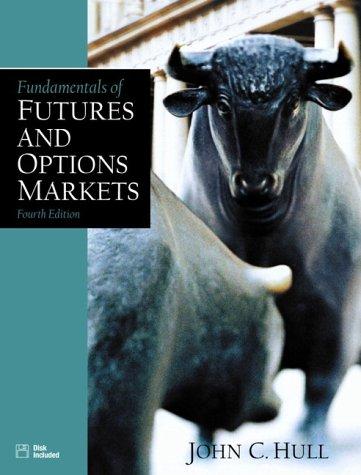Question
You Be the Consultant The Never-Ending Hunt for Financing The Automobile Film Club of America Ralph Lucci, owner of The Automobile Film Club of America
You Be the Consultant The Never-Ending Hunt for Financing
The Automobile Film Club of America
Ralph Lucci, owner of The Automobile Film Club of America in Stapleton, New York, operated a true niche market business. Luccis business rented vintage and specialty cars for use in movies and television shows filmed in the New York City area. The Automobile Film Club of America had been operating since 1993. Although the business suffered in the aftermath of 9/11, it survived that setback, and Lucci was able to rebuild the company as film and television production returned to New York.
At its peak, the business grew to 14 full-time employees who helped support the more than 300 cars the company rented for film and television productions. However, over the next few years the business faced more challenges. The company lost the lease on the lot it used to store the cars, and Lucci could not find a lot large enough to keep his entire inventory, forcing him to sell off many of the cars. Revenues declined, and soon the business could support only him and his wife on the payroll. When hurricane Irene hit in 2011, the company took another financial hit due to damage to its property and lost business.
However, the worst was yet to come.
When hurricane Sandy hit in October 2012, the storm surge flooded his car lot and garage, completely submerging almost all of his cars in salt water. The cars and much of his equipment were a total loss. The building he used for offices and car maintenance also was severely damaged by the flooding. He estimated that the total loss was more than $400,000. The only insurance he carried on the business was for liability, so there was no coverage for his lost property.
Lucci, who is 60 years old, must decide whether he is willing to use his personal assets, including his home, as collateral and attempt to secure a business loan to restart his company.
Eatwhatever
Jacqui Rosshandler, an Australian ex-pat working for an interior design company in New York City, wanted to start a business and leave her corporate career. She had noticed that a popular breath-freshening product sold in Australia was not available in the United States. The product was a gel cap made from meat byproducts, but Rosshandler decided to make her product from organic peppermint oil and parsley seed oil. Much of the source of bad breath is in the stomach, not the mouth, so the gel caps were very effective. However, she knew that American consumers were used to sucking on breath mints. She decided that she would package the gel cap with a breath mint, so consumers could suck on the mint after swallowing the gel cap. She would market her product as Eatwhatever.
Rosshandler outsourced product formulation and production to a contract manufacturer. She hired a packaging designer to create a package that displayed the product in a clear and attractive way. Eatwhatever is marketed as 2 Steps to Kissable Breath.
Although customers loved her product, she had a difficult time getting contracts with large retailers. She had success selling online and in specialty shops, but it was not enough to fund the growth of the company. Cash was tight. In fact, cash was so tight that she did not have enough to pay for marketing or for a new production run.
Rosshandler met Arthur T. Shorin, an angel investor and former CEO in the candy industry. Shorin liked the product and offered to invest $250,000, connect Rosshandler with people he knew in the industry, and give her a salary on top of the investment in the company. In return, he would take 75 percent ownership in the business. Rosshandler could earn back 15 percent of the company if revenues met certain targets. Although her friends urged her not to accept his terms, she was concerned that her business would not succeed unless it got the cash and connections Shorin offered her.
1. Which of the funding sources described in this chapter do you recommend that Ralph Lucci and Jacqui Rosshandler consider for financing their businesses? Which sources do you recommend they not use? Why?
2. What can entrepreneurs do to increase the probability that bankers will approve their loan requests?
3. Work with a team of your classmates to brainstorm ways these entrepreneurs could attract the capital they need for their businesses. What steps do you recommend they take before they approach the potential sources of funding you have identified?
Step by Step Solution
There are 3 Steps involved in it
Step: 1

Get Instant Access to Expert-Tailored Solutions
See step-by-step solutions with expert insights and AI powered tools for academic success
Step: 2

Step: 3

Ace Your Homework with AI
Get the answers you need in no time with our AI-driven, step-by-step assistance
Get Started


